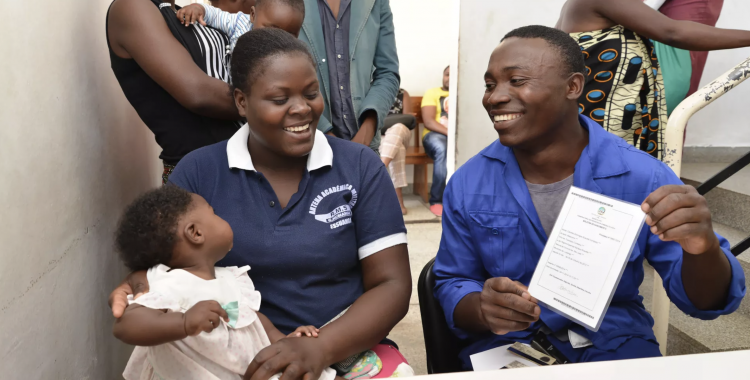The information was released this Thursday by the Secretary of State for Human Rights, Antónia Yaba, during the public debate with civil society organizations on the Report of the IV cycle of the Universal Periodic Evaluation, based on the recommendations arising from the III cycle.
Antónia Yaba said that Angola welcomed 259 of a total of 270 recommendations made by 110 member states at the 34th session of the United Nations Human Rights Council, of which she highlighted the policy to improve birth registration.
According to the Secretary of State for Human Rights, the National Strategy for Universalizing Birth Registration and Issuing Identity Cards was approved last year, with the fundamental objective of granting citizenship, which they hope to implement and implement this year.
"As for birth registration, the number is still not satisfactory", said Antónia Yaba, highlighting that the "BI da Dipanda" campaign is underway, for the free granting of registration, issuing of birth certificates and identity cards, to people from zero to 17 years old.
The Secretary of State for Human Rights said that the posts also operated on weekends in November, but there was no "very considerable flow of people" recorded.
"We were careful to consult some members of the local committees, some civil society organizations, to ask why we didn't have that considerable number of people at the posts and they said that people didn't feel comfortable going, because they didn't know if in fact they would have to pay something or not", she explained.
The recommendations focused mainly on the need for Angola to ratify international conventions, approve a new Penal Code and a National Human Rights Strategy, as well as strengthen the protection of women's rights, policies to combat corruption and poverty, as well as the need to a judicial reform.
Antónia Yaba considered the human rights situation in Angola to be "good", highlighting that the Government classifies this matter as a matter of national security and that many of the policies have already been implemented, but "many are also yet to be implemented", such as the implementation of local committees. of human rights throughout the country and provide them with some budgetary availability.
In an interview with the press, the president of the Mãos Livres Association, Guilherme Neves, praised the initiative, stating, however, that it was flawed due to the lack of access to the document by the organizations present.
Guilherme Neves said that it was important to carry out an assessment between the III and IV cycles, to assess progress in indicators such as the right to health, education, housing, land, fundamental freedoms, particularly in terms of improving participation.
The association leader emphasized Angola's periodic compliance in presenting its reports, highlighting, however, that there are challenges.
"At the legislative level, we have a rich Constitution, which expands and defends rights and guarantees. The issue here is what is in the law and in practice. We understand that we still have several challenges", said Guilherme Neves, highlighting that, during the debates, "challenges from the point of view of freedoms" were highlighted.
"There are still sectors that cannot participate freely or people who express themselves freely are seen as opposition," he criticized.







